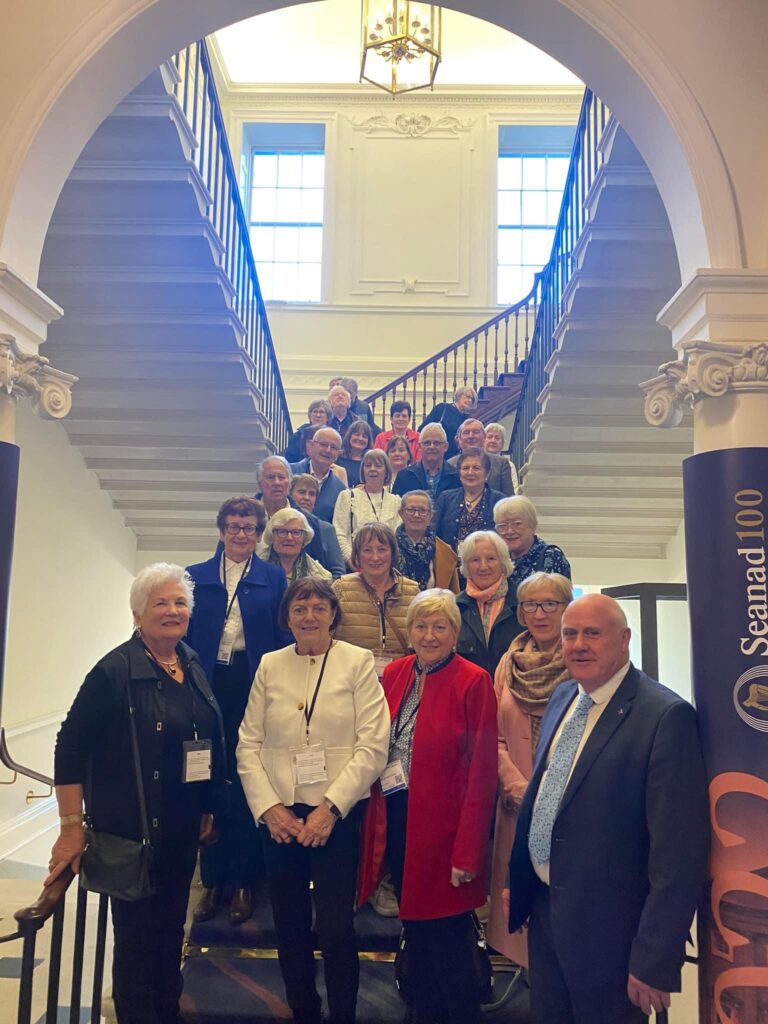The Active Retirement Movement is for people whose whole day is no longer taken up with work, paid or unpaid. It is for men and women who are retired and over 50 years who want to engage in educational, cultural, sporting and social activities of their own choice and so make this period a more meaningful and enjoyable phase of life. Included are those who have retired from full time work or who have been made redundant or perhaps unemployed and also for those who having reared a family now find themselves with less work to do in the home.
Membership offers support, companionship, information and encouragement and helps overcome the loneliness and isolation which can creep into life as one gets older. Activities include pitch and putt, walking, swimming, golf, art, computer classes, creative writing, bowling and social events such as theatre nights day trips, interesting talks and short holidays. There are links with the Irish Senior Citizens’ Parliament tackling such issues as Pensions, Health, Security and Housing and also with similar groups locally and in Europe and the USA.
Branches are active in Knocknacarra, Renmore, Salthill and Centre city with a combined membership of over 500 men and women. More branches are planned in other areas of the West of Ireland.
If you would like further information please contact Ann Goodwin, Development Officer—tel. 091 592780 E-mail: [email protected]
More Information
Members: First, decide if your group is to be based around socialising, or is there another main interest like sport, arts or a campaign issue? Use your imagination to recruit members; advertise where and when your target group is likely to be. Put notices on library notice boards, shop windows and community centres. Ask your local clergy to inform congregations. Make your advertising as clear as possible; potential recruits should be able to contact the group easily.
Premises: Premises depend on numbers and any special needs (for example, wheelchair access) of members, as well as the initial budget. Network locally: is there a local community centre, church premises or school available? Libraries sometimes have meeting rooms. Contact your Health Board’s Community Care Services to see if a Health Board room would be available.
Activities: Some groups are mainly social, with members sharing outings, socials, cinema, theatre or cards. Others revolve around activities like walking, table-tennis, bowling or swimming. Still other groups exist to campaign on issues like public transport, pension rights, or local environmental issues.
“The capacities of older people represent a great reservoir of resources, which so far has been insufficiently recognised and mobilised. All generations stand to gain something important from policy changes which enable and motivate older people to become and remain more active.”
—European Commission, Employment & Social Affairs, Active Ageing: Promoting a European Society for all Ages, 1999


